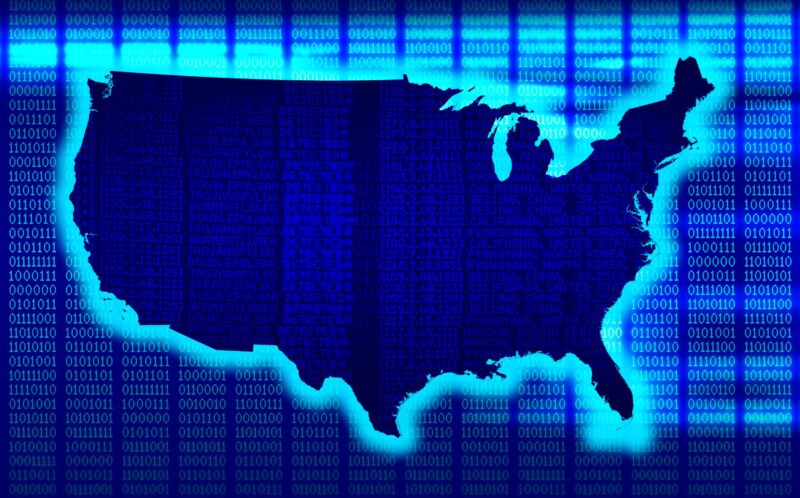
Getty Photographs | Matt Anderson Images
California can preserve implementing its state internet neutrality regulation after the Federal Communications Fee implements its personal guidelines. The FCC might preempt future state legal guidelines in the event that they go far past the nationwide commonplace however stated that states can “experiment” with completely different rules for interconnection funds and zero-rating.
The FCC scheduled an April 25 vote on Chairwoman Jessica Rosenworcel’s proposal to revive internet neutrality guidelines much like those launched throughout the Obama period and repealed underneath former President Trump. The FCC yesterday launched the textual content of the pending order, which might nonetheless be modified however is not more likely to get any main overhaul.
State-level enforcement of internet neutrality guidelines can profit customers, the FCC stated. The order stated that “state enforcement typically helps our regulatory efforts by dedicating extra assets to monitoring and enforcement, particularly on the native stage, and thereby guaranteeing larger compliance with our necessities.”
California stepped in to manage broadband suppliers after then-FCC Chairman Ajit Pai led a vote to repeal the federal guidelines. California beat ISPs in courtroom, guaranteeing that it might implement the state regulation though Pai’s FCC tried to preempt all state internet neutrality guidelines.
The California regulation largely mirrored the FCC’s repealed guidelines by prohibiting paid prioritization and blocking or throttling of lawful site visitors, on each fastened and cellular networks. California went additional than the FCC in regulating zero-rating by imposing a ban on paid knowledge cap exemptions.
Which means ISPs working in California cannot exempt Web site visitors from prospects’ knowledge utilization allowances in alternate for cost from a 3rd social gathering. In response to the state regulation, AT&T stopped exempting HBO Max from its cellular knowledge caps and stopped its “sponsored knowledge” program during which it charged different corporations for comparable exemptions from AT&T’s knowledge caps.
FCC: No motive to preempt California
Within the order scheduled for an April 25 vote, the FCC stated the California regulation “seems largely to reflect or parallel our federal guidelines. Thus we see no motive at the moment to preempt it.”
That does not imply the foundations are precisely the identical. As a substitute of banning sure sorts of zero-rating solely, the FCC will choose on a case-by-case foundation whether or not any particular zero-rating program harms customers and conflicts with the purpose of preserving an open Web. The FCC stated it’ll consider sponsored-data “applications primarily based on a totality of the circumstances, together with potential advantages.”
The FCC order cautions that the company will take a dimmer view of zero-rating in alternate for cost from a 3rd social gathering or zero-rating that favors an affiliated entity. However these classes will nonetheless be judged by the FCC on a case-by-case foundation, whereas California bans paid knowledge cap exemptions solely.
Regardless of that distinction, the FCC stated it’s “not persuaded on the file at the moment earlier than us that the California regulation is incompatible with the federal guidelines.” The FCC additionally discovered that California’s strategy to interconnection funds is suitable with the pending federal rule. Interconnection was the topic of a main controversy involving Netflix and large ISPs a decade in the past.
Interconnection and zero-rating
The FCC’s new order addressed interconnection and zero-rating as follows:
As to the previous, California prohibits BIAS [Broadband Internet Access Service] suppliers from requiring interconnection agreements “which have the aim or impact of evading the opposite prohibitions” by blocking, throttling, or charging for site visitors on the interconnection level. We now have likewise said on this Order that BIAS suppliers might not have interaction in interconnection practices that circumvent the prohibitions contained within the open Web guidelines.
As to the latter, California restricts zero-rating when utilized discriminatorily to solely a subset of “Web content material, functions, providers, or units in a class” or when carried out “in alternate for consideration, financial or in any other case, from a 3rd social gathering.” We now have likewise defined on this Order that sponsored-data applications—the place a BIAS supplier zero charges an edge product in alternate for consideration (financial or in any other case) from a 3rd social gathering or the place a BIAS supplier favors an affiliate’s edge merchandise—elevate considerations underneath the overall conduct commonplace.
The FCC stated it discovered no proof that the California regulation has “unduly burdened or interfered with interstate communications service.” In the case of zero-rating and interconnection, the FCC stated there may be “room for states to experiment and discover their very own approaches inside the bounds of our overarching federal framework.”
The FCC stated it’ll rethink preemption of California guidelines if “California state enforcement authorities or state courts search to interpret or implement these necessities in a way inconsistent with how we intend our guidelines to use.”

